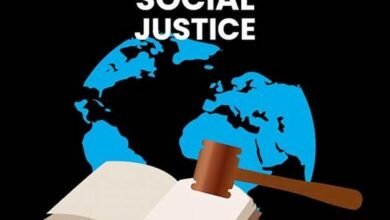International Day for the Right to the Truth: A Day to Stand for Truth and Human Rights

The International Day for the Right to the Truth concerning Gross Human Rights Violations is observed annually on March 24. It was declared an international day by the UN General Assembly on December 21, 2010. This celebration honors Monsignor Óscar Arnulfo Romero, who was killed on March 24, 1980. Monsignor Romero actively participated in condemning human rights abuses against El Salvador’s most vulnerable citizens.
History of International Day for the Right to the Truth concerning Gross Human Rights
Saint Oscar Romero was born in El Salvador in 1917 and at the young age of 13 years, he desired to become a priest. Romero moved to Rome to finish his education.
In 1943 he was called back to his native country, where he started a conservative career that ended in 1977 when he was appointed Archbishop of San Salvador. Some priests were concerned that Romero leaning more on the conservative side would become friends with the government and forget the church’s commitment to helping the underprivileged.
But after a fellow priest Rutilio Grande was murdered, Romero started criticizing the military government for oppressing the masses. He defended the rights of El Salvador’s poor masses and became known for his boldness.
On March 24, 1980, he was murdered at a chapel at Hospital de la Divina Providencia while attending Mass, and his killers were never found. An investigation revealed that his murder was ordered by a right-wing pro-government political party.
In Romero’s memory, the United Nations proclaimed March 24 to be the International Day for the Right to the Truth about Gross Human Rights Violations and the Dignity of Victims to strengthen the cause of truth.
What Is the Right to the Truth?
One essential human right is the right to know the truth. It guarantees that affected persons and the general public have access to complete and accurate information regarding gross abuses of human rights and grave violations of international humanitarian law. This entails being aware of what transpired, why, and who is responsible.
Telling the truth involves more than just facts. It is about giving affected people their dignity back. The goal is to establish the foundations for justice and peacemaking.
Lessons that children can learn from this day
- Children can learn the importance of telling the truth so that the affected persons can seek justice and heal.
- Children will learn that the right to truth is a basic right for everyone.
- They will learn about human rights, equality, and truth are necessary for a just society.
- They will learn to have empathy for people who have suffered injustice.
- They will learn to speak up against injustice and oppression starting from their school and community.
- They will learn about human rights activists who fought for the rights of the people.
Conclusion
Today is a call to unite and stand against oppression and injustice by defending the well-being, security, and dignity of people. The words of Monsignor Oscar Romero should be taken seriously. “The ones who have a voice must speak for those who are voiceless.”





